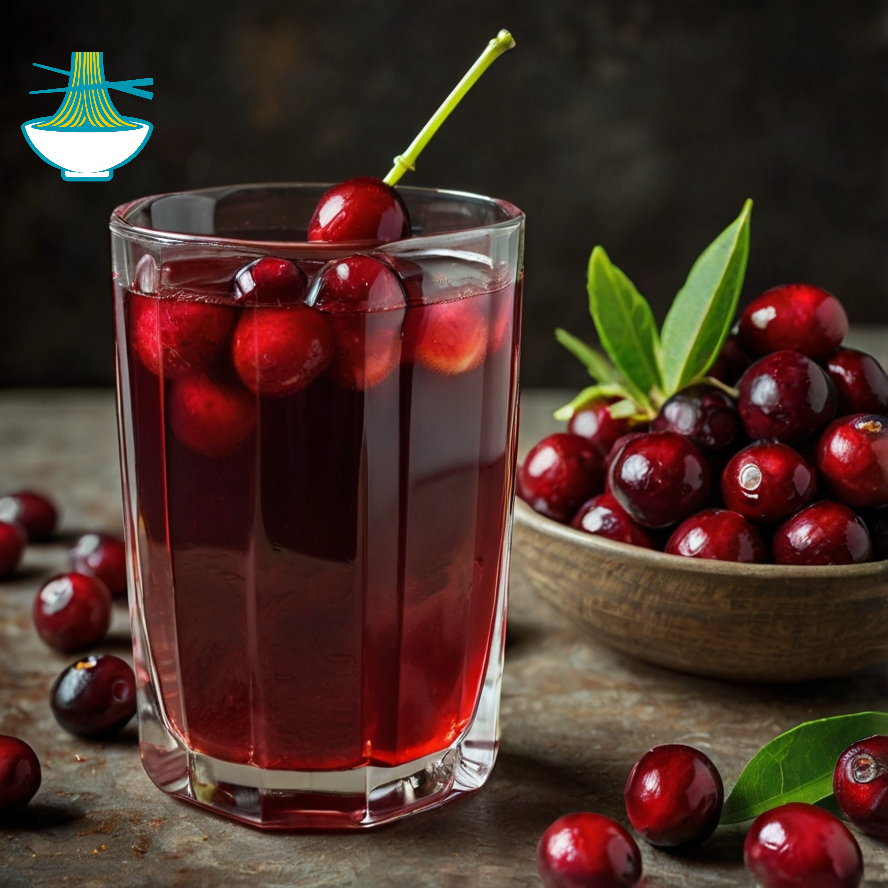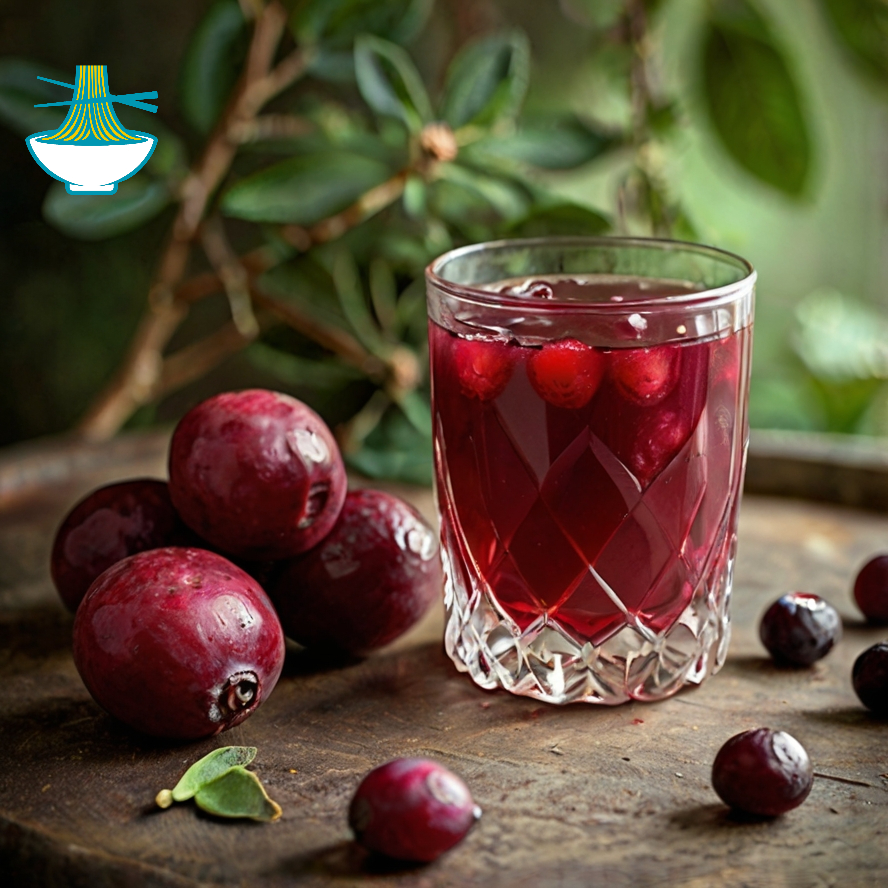Cranberry juice is a nutrient-rich, refreshing beverage that offers a range of health benefits. Cranberries are packed with antioxidants like vitamin C and flavonoids, which can help protect against oxidative stress, boost the immune system, and support heart health. The juice is also known for its ability to improve urinary tract health, making it a popular choice for those looking to enhance their overall wellness. This tangy, slightly tart drink is a great way to enjoy the nutritional benefits of cranberries in a simple, hydrating form.

Ingredients:
- 1 cup fresh or frozen cranberries
- 4 cups water or coconut water
- Sweetener ( honey )
Method of Preparation:
1. Rinse cranberries: Wash the cranberries thoroughly under cold water.
2. Boil: In a pot, add the cranberries and 4 cups of water (or coconut water). Bring the mixture to a boil.
3. Simmer: Reduce the heat and let the cranberries simmer for about 15 minutes until they burst and soften.
4. Strain: Using a fine mesh strainer or cheesecloth, strain the liquid into a container, pressing down on the cranberries to extract all the juice.
5. Sweeten (optional): If desired, add a sweetener such as honey to taste.
6. Chill and serve: Let the juice cool before serving. Store any leftovers in the refrigerator.

Nutrition Value:
1. 1 cup fresh or frozen cranberries
- Calories: Approximately 46 calories
- Carbohydrates: Around 12 grams
- Protein: 0.4 grams
- Fat: 0.1 grams
- Sodium: 1 milligram
- Cholesterol: 0 milligrams
- Vitamins: High in vitamin C (14 mg), provides some vitamin E and K
- Minerals: Contains potassium, manganese, and small amounts of magnesium
- Nutritional benefit: Cranberries are packed with antioxidants, particularly proanthocyanidins, which may help reduce the risk of urinary tract infections, improve digestion, and support immune health. They are also known for their anti-inflammatory properties.
2. 4 cups water or coconut water
- Calories: 0 calories for water, approximately 45-60 calories for coconut water (depending on the brand)
- Carbohydrates: 0 grams for water, 9-11 grams for coconut water
- Protein: 0 grams for water, 1-2 grams for coconut water
- Fat: 0 grams for water, 0.5 grams for coconut water
- Sodium: 0 milligrams for water, around 25-250 milligrams for coconut water (depending on the brand)
- Cholesterol: 0 milligrams
- Vitamins: Coconut water contains small amounts of vitamins C and B-complex vitamins
- Minerals: Coconut water is rich in potassium (600 mg), magnesium, and small amounts of calcium
- Nutritional benefit: Water is essential for hydration and body function. Coconut water is a good source of electrolytes, particularly potassium, making it beneficial for rehydration after physical activity. It also supports heart health and muscle function.
3. Sweetener (honey)
- Calories: 64 calories per tablespoon (depending on the amount used)
- Carbohydrates: 17 grams per tablespoon, mainly from sugars
- Protein: 0.1 grams per tablespoon
- Fat: 0 grams
- Sodium: 1 milligram per tablespoon
- Cholesterol: 0 milligrams
- Vitamins: Trace amounts of vitamins B6, C, and riboflavin
- Minerals: Contains small amounts of calcium, iron, and potassium
- Nutritional benefit: Honey offers a natural source of antioxidants and can soothe sore throats and coughs. It has antimicrobial properties and can serve as a natural energy booster due to its carbohydrate content. However, honey should be consumed in moderation due to its high sugar content.


Comments